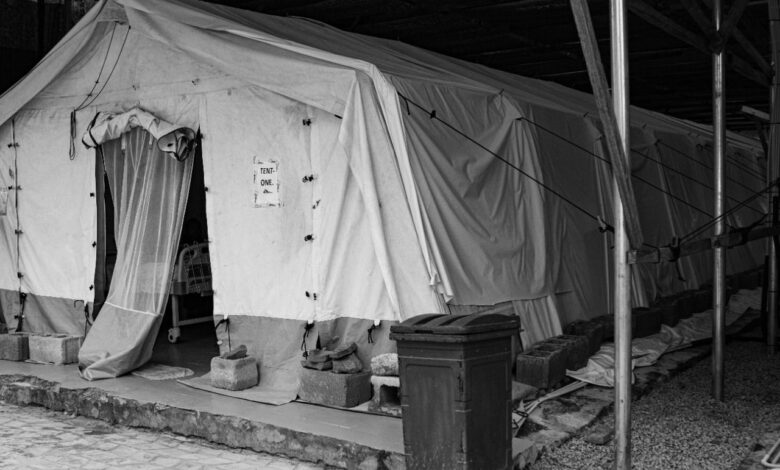Floods Push Rise In Cholera Cases Alarming Aid Agencies
Cases of the water-borne disease cholera have exploded, leaping 900 per cent in recent weeks. Unprecedented levels of flood water lingering from this year’s rains in areas where there are large numbers of people living close together with poor sanitation threaten further spread, relief organisations warn.

Cases of the deadly water-born disease cholera have increased by 900 per cent in just a few weeks, alarming relief organisations providing aid to people in Borno.
The number of patients being admitted to treatment centres increased from 50 to over 500 per week by the end of September, Medecins Sans Frontieres/Doctors Without Borders (MSF) revealed.
A million people living in displaced peoples camps and villages with poor sanitation could be at risk if nothing is done, MSF said.
A total of 1,644 people are currently being treated for cholera in the organisation’s treatment centres in Maiduguri, Borno State, Northeast Nigeria, MSF said.
In August, the organisation scaled up treatment centres’ capacity from 90 to 120 beds each, as part of the annual preparations for receiving cholera patients and opened an oral rehydration point near high risk areas.
The Ministry of Health in Borno State declared an outbreak on Wednesday, Sept. 14 after cases were confirmed in seven local government areas (LGAs).
Flooding from the onset of the rainy season has exacerbated the situation. “The floods usually overfill septic tanks which has contributed greatly to the disease’s outbreak,” Abdulkareem Haruna, HumAngle’s regional editor in the Northeast said
Haruna added that the Borno State Government had also embarked on demolishing illegal structures around coastal communities to reduce the flooding.
The cholera outbreak is said to be worsening malnourishment in children. MSF noted that it has seen unprecedented numbers of patients since May. Nearly 4,400 malnourished children were admitted for in-patient care in the first eight months of the year, a 160 per cent increase on the same period last year.
Daniela Batista, MSF’s project coordinator noted that, “We expect other organisations also to scale up their activities by opening cholera treatment centres and oral hydration points to respond to the upsurge in cholera patients.”
Dr Htet Aung Kyi, MSF’s medical coordinator explained that cholera is an acute diarrheal illness that can rapidly lead to dehydration and death if untreated. “People must adopt protective behaviour, including better sanitation, hygiene and clean drinking water. Patients must also be brought to treatment facilities at the earliest stage of the sickness,” he said.
The organisation calls for a more robust response to the current health crisis in Borno State. “Cholera is an imminent threat to many thousands of people across Borno, combined with the worrying increase in childhood malnutrition, MSF teams are encouraging the local community to take protective measures to prevent the disease from spreading further.”
Support Our Journalism
There are millions of ordinary people affected by conflict in Africa whose stories are missing in the mainstream media. HumAngle is determined to tell those challenging and under-reported stories, hoping that the people impacted by these conflicts will find the safety and security they deserve.
To ensure that we continue to provide public service coverage, we have a small favour to ask you. We want you to be part of our journalistic endeavour by contributing a token to us.
Your donation will further promote a robust, free, and independent media.
Donate HereStay Closer To The Stories That Matter




